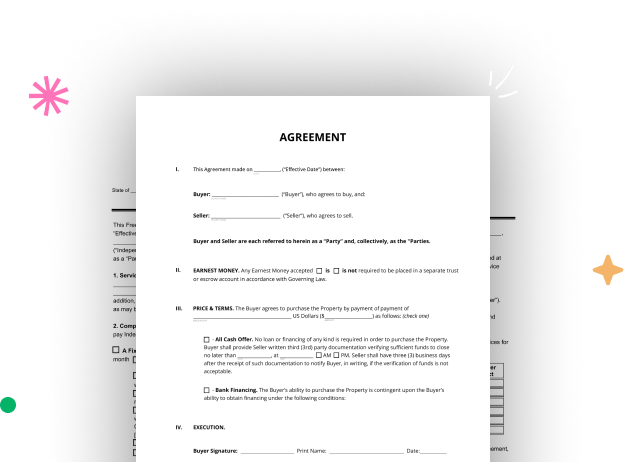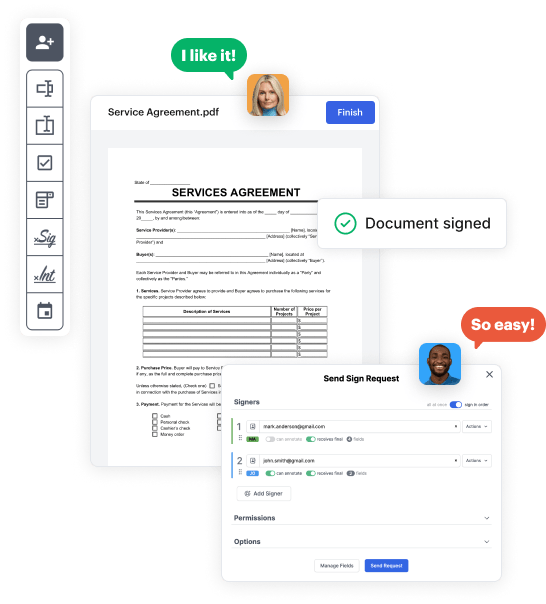

Visit the DocHub website and register for the free trial. This provides access to every feature you’ll require to build your Maine Real Estate Law without any upfront cost.
Sign in to your DocHub account and go to the dashboard.
Hit New Document in your dashboard, and select Create Blank Document to design your Maine Real Estate Law from scratch.
Insert various elements such as text boxes, radio buttons, icons, signatures, etc. Organize these elements to match the layout of your document and assign them to recipients if needed.
Organize your document effortlessly by adding, repositioning, deleting, or combining pages with just a few clicks.
Convert your freshly crafted form into a template if you need to send multiple copies of the same document numerous times.
Send the form via email, distribute a public link, or even post it online if you aim to collect responses from a broader audience.